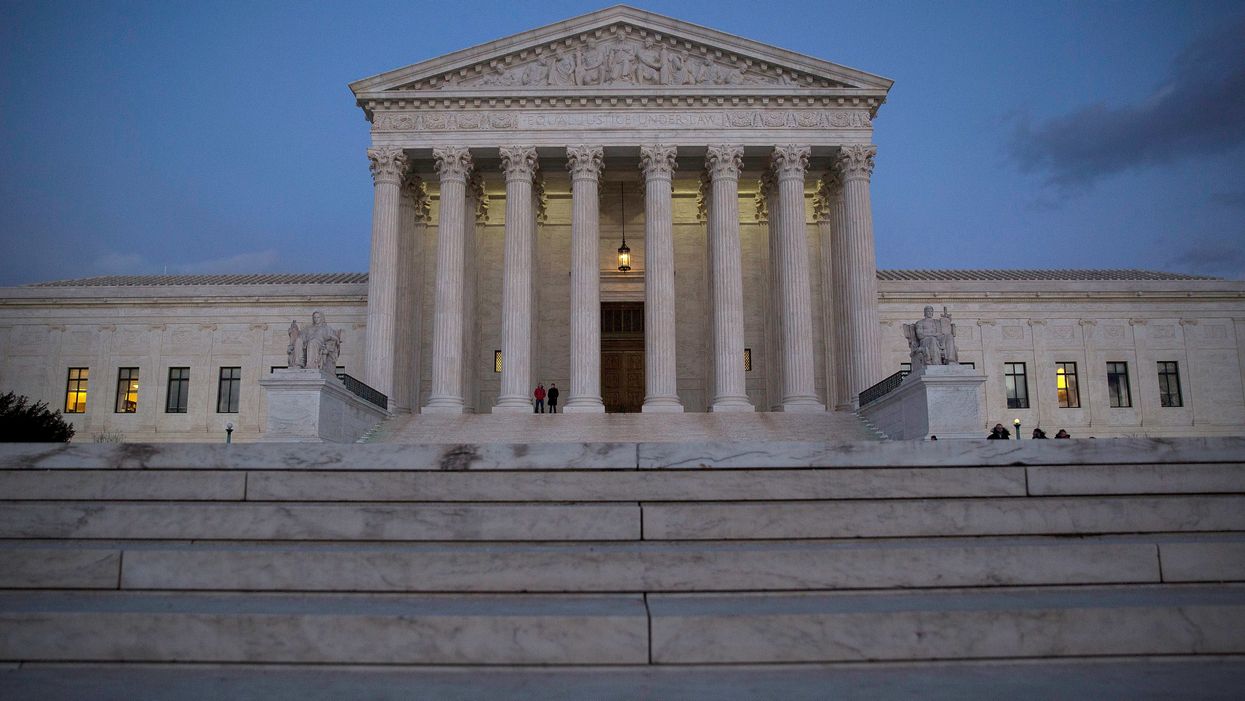The Supreme Court has extended its unbroken string of rulings against making it easier to be part of the democratic process during the pandemic.
The justices on Tuesday blocked a lower court's ruling that it should be easier for Oregon's redistricting reform advocates to collect signatures during the national health crisis. The decision means there won't be a referendum on the November ballot that would take the power to draw congressional and legislative maps away from the Democratic powers in Salem and turn it over to a new citizens' redistricting commission — the top goal of crusaders against partisan gerrymandering.
It's the latest of seven cases since this spring where the conservative-majority high court has ruled against groups seeking relaxed ballot rules because of the coronavirus. It has not ruled once in favor of such an effort.
The group People Not Politicians had gone to federal court to seek permission to use the internet and the mail to gather the necessary 150,000 signatures on its ballot measure petitions, arguing the social distancing norms of Covid-19 made it impossible to comply with state's in-person requirements. It did not get exactly what it wanted, but instead a federal judge told Oregon to either accept as sufficient the 59,000 valid signatures the coalition had gathered by the July deadline or else extend the deadline until the middle of this month.
The Supreme Court did not give any reasons for granting the state's request and blocking that decision, which is typical when the justices act on such emergency appeals. Justices Sonia Sotomayor and Ruth Bader Ginsburg said, however, that they would have upheld the lower court's relaxation of the rules.
Democratic Attorney General Ellen Rosenblum argued in her appeal that the lower court ruling "effectively rewrites the provisions governing how the Oregon Constitution can be amended through an initiative" and "threatens to enshrine permanently in the state constitution an amendment that does not meet state requirements."
Federal Judge Michael McShane of Eugene had described things very differently in his opinion five weeks ago.
"Because the right to petition the government is at the core of First Amendment protections, which includes the right of initiative," he wrote, "the current signature requirements in Oregon law are unconstitutional as applied to these specific plaintiffs seeking to engage in direct democracy under these most unusual of times."
The Supreme Court has issued six other orders in voting disputes since the Covid-19 outbreak began, in general relying on the court's own precedent that the judiciary should wade into fights over election procedures sparingly — especially when election day is near.
The most prominent decision was the first, one the eve of a Wisconsin primary, when the court ruled 5-4 along ideological lines to reverse a federal judge's order expanding the window for receiving absentee ballots. The result was that thousands of mailed-in votes arrived too late to be counted and were discarded.
The court has also:
- Rejected a bid by the Texas Democratic Party to force the state to allow no-excuse absentee voting for everyone because of Covid-19, on the grounds that opening the process wide only to voters older than 65 amounts to age discirmination.
- Refused to make absentee balloting easier in Alabama until the end of the pandemic, keeping in place the requirement that mailed ballots include an affidavit signed by a notary or two witnesses.
- Sided with state officials in Utah by blocking a lower court ruling that would have eased the requirements for getting an education-related referendum on the ballot during the health emergency.
- Rejected an appeal to make Ohio accept electronic signatures from residents seeking to place voter initiatives — including one to raise the state's minimum wage and another making an array of election process changes — on the ballot this year.
- Preserved an appeals court ruling preventing hundreds of thousands of convicted felons from voting in Florida, at least in next week's primary and possibly in November as well. The case precedes the pandemic, centering on a 2018 referendum restoring voting rights to felons after their probation and parole — but since complicated by a state law requiring them to also repay financial obligations.
Redistricting typically occurs once every 10 years, right after the census details — down to the neighborhood — where the population has shifted, soared or shrunk. So the advocacy group in Oregon argued that its effort would be meaningless for an entire decade unless they got on the ballot in November.
With the Oregon effort now dead, Virginia and North Dakota are for now the only two states that will decide in November whether the next collection of maps will be crafted by independent panels. An effort to get a commission measure on the ballot is still alive in Arkansas. On the other hand, Missouri voters will decide whether to undo a redistricting initiative enacted two years ago.
For now, 14 states are sure to use independent commissions to draw the next legislative districts lines, and eight will do so for congressional districts.
The effort to limit partisanship in Oregon's political mapmaking got started after the Supreme Court ruled 5-4 a year ago that federal courts are powerless to hear challenges to the practice — but said ballot measures would be a totally permissible way to curb such gerrymandering.




















